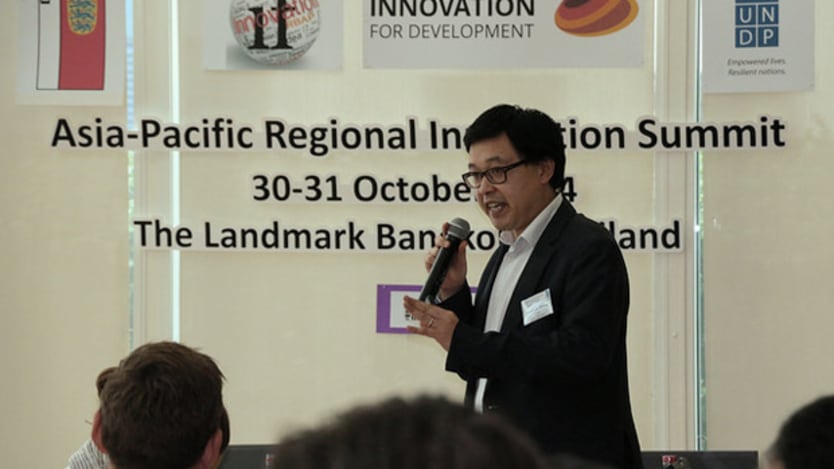
I was in Bangkok last week to cover the Asia-Pacific Regional Innovation Summit organized by the United Nations Development Program. At the closing, one participant asked when development agencies will finally mainstream innovation across their programs. There’s no easy answer to that question.
See more on innovation:
● At UNDP, a SHIFT toward business unusual
● UNDP Innovation Facility takes off
● DfID, UNDP: How senior management can foster a culture of innovation among staff
Today, most innovation-related activities take place in a “hub” or a “lab,” separate from the day-to-day operations of humanitarian and development organizations. Employees are often handicapped by restrictions on doing business, and the pressure to deliver can prevent them from taking risks — or even making time to consider new ways to fight poverty and hunger and increase opportunity around the globe. People are busy and get caught up in the status quo — something that was evident during the summit, too, where many delegates were multitasking, attending sessions while checking emails, crafting reports and meeting regular work deadlines.
Mainstreaming innovation within an organization may require new policies and procedures. In all likelihood, it will require an overhaul of internal culture, particularly to encourage employees to take calculated risks and pursue new partners.
“Working in an organization such as UNDP, people need reassurance that they can work in an environment that allows sometimes for there to be failure,” said Nicholas Rosellini, UNDP deputy regional director for Asia and the Pacific and director of the Bangkok regional hub, when I asked him about takeaways from the two-day summit. “We use the phrase ‘safe to fail,’ and of course we want to design projects and initiatives that work but also have to understand that if we're innovating, some things will work and some things won't work and we need to understand why they don't work.”
Assurance from management can only go far. For employees to learn how to manage risks, they need to share lessons learned with peers, according to Jonathan Wong, head of the U.K. Department for International Development’s innovation hub and a panelist during the closing session of the summit.
For its part, UNDP management is hoping that the summit, along with further initiatives like staff training and a fund dedicated to innovation, will mainstream that elusive way of thinking and doing business in Asia-Pacific. It’s an ambitious goal that may help to explain why summit attendees were full of praise for what they called a rare and worthwhile gathering.
What do you think are some of the challenges of institutionalizing innovation in development organizations? Let us know by leaving a comment below.
Read more development aid news online, and subscribe to The Development Newswire to receive top international development headlines from the world’s leading donors, news sources and opinion leaders — emailed to you FREE every business day.








